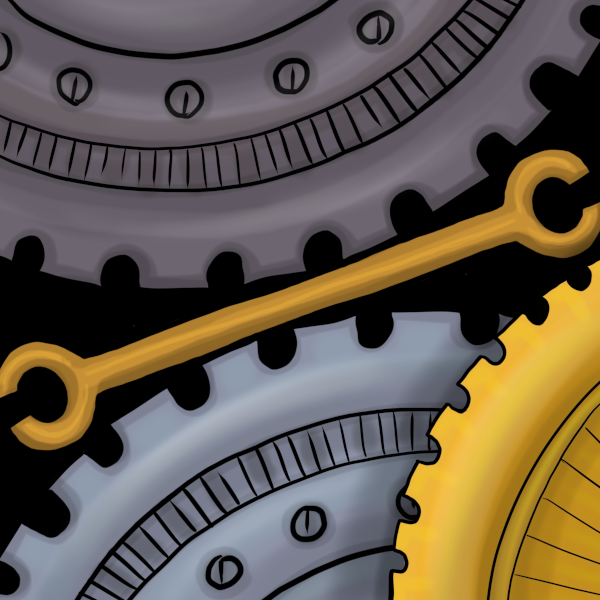- cross-posted to:
- technology@beehaw.org
- cross-posted to:
- technology@beehaw.org
Because many people can’t afford a diagnosis or don’t want to get an official one for fear it could be used against them.
Also finding other people that share your issues is incredibly comforting.
Also, if you’re a teen, and your parents have unexamined problems or are abusive, they will not give resources to get pro help or might target you for mistreatment if you try.
There are plenty of families who have severe problems and desperately hide them and lash out at anyone trying to get help and fix it.
Back in my day, we used MySpace quizzes for Mental Health Diagnoses.
…
But seriously, thanks for sharing this article. What a fascinating website that I was simply not aware of. Added to my bookmarks.
munchausen by tiktok
We need to revive the antipsychiatry movement. The article hits hard because for way too many years I was caught up in this shit myself, first as the teen (self-diagnosing before social media, based on books), then as parent. Now I tell my kid differently, but hell they’ve convinced so many of us that everything is fine and it’s us who have a problem.
Yikes
Would you like to elaborate?
Your stance, as I read it, is that mental healthcare only exists to make people accepting of large scale societal issues, and that those issues are the true cause of metal health disorders.
That’s a pretty serious conspiracy theory on a whole branch of medicine coming from someone who clearly has no expertise on the topic. This is the mental health equivalent of being an anti-vaxer. It shows a deep lack of understanding of your own privilege and the actual mental health struggles people have.
A lot of recent studies in both psychiatry and psychology have shown they are not as hard-sciencey as they would like to be. Chemical balance as as cause for depression for example was recently dismissed. The definitions of the DSM are ever shifting and changing, almost as if they were made up - luckily they took the gay out of there as a disorder, thank you very much! I would say not all of it is a scam, and based on 19th century old white men’s weird ideas, but the whole of it is definitely only one model of the actual mental health landscape of people, and a very bad one at that.
I don’t dismiss the existence of mental health challenges. I don’t believe that we would all be mentally well in some imagined utopia. I have lived with mental health challenges myself all my life - probably on what is commonly called the ASD/ADHD spectrum* but undiagnosed because I wasn’t a boy. So I kind of slipped through the grid and had to figure things out for myself, and had to come up with uncommon adaptations. And that has indeed given me privilege or better said advantage compared with those friends and family who somehow got into contact with psychiatry and/or psychology. They were locked up, told the way they think is wrong, misdiagnosed, medicated with stuff that now in many cases proves to cause lasting damage in the brain, the list goes on. Most people I know who started medication for mental health issues continue medication, for all their lives, often with awful side effects that end up being way worse than the actual issue.
Plus, a lot (not all!) of the mental health services currently available are geared to ‘maintain’ people so they can withstand increasingly abusive employment situations and ever increasing financial hardship. That’s enabling abuse in my book, and I want no part of it. They could encourage a 4 day work week and liveable wages instead and see how people’s mental health improves.
- ASD/ADHD is one of those conditions where psychiatry/psychology has produced not much more than crude tools to handle us weirdos. Many of those of us who thrive do so by their own ingenuity/consulting with the ASD/ADHD community rather than any mental health service. That’s why I prefer the term Neurodiverse, or Neurofunky. I am not disordered. I have difficulties to thrive within the usual conditions of mainstream society where it gets too noisy or peopley, but do very well when not forced to participate in that. So what I would advocate for is not a system that tells us that we are disordered, but a system that creates conditions where we can be productive on our own terms. For example, I couldn’t work a full-time job in public, and that might make me disabled in many people’s eyes. But I’m not disabled, because I can be fully productive in a remote job where I only work a few hours a week, and I balance it by growing most of my own food. You could say I created my own little looney residence - and I am fully aware that I have been lucky and am very privileged to have created that for me. But this kind of thing is what I advocate should be available for people, not being forced into a noisy 9-5 job and then being told by a mental health professional that something is wrong with them.
Normally when I run into my own writing in the wild, I stay out, but I want to defend schmorp here because that is not a fair interpretation of a topic that I feel very strongly about due to deeply personal reasons.
Anti-psychiatry, or mad liberation, or mad pride, or the million other related movements and ideas, are the complete opposite of what you’re saying. They are about the radical acceptance of and complete solidarity with people of all kinds, no matter what, and the rejection of pathologizing them, othering them, and giving them treatments that are often literally torture. Modern psychiatric facilities routinely, to this day, torture patients. They do everything from neglect to electrocution to sleep deprivation to solitary confinement to physical and chemical restraints. These are things that are done with the intention of better outcomes, no doubt, but are also part of a tradition of psychiatric treatment that has been torturing patients supposedly to help them for hundreds of years.
I have personally witnessed this. It changed me forever. I thought that shit was from the past, but it is not. It is here, in the first world, in supposed state-of-the-art medical facilities. If you fall deep enough, if you need help bad enough, as things are now, you will be met with torture. They will lock you in padded rooms with nothing but a bed, a light, 4 cameras watching you, and bloody scratch marks on the wall. They will electrocute you. They’ll take your phone away and limit your family visits to 1 hour every other day, leaving you isolated and your family terrified.
It’s not a conspiracy theory like antivax. It’s a heterodox and critical interpretation of the existing science and its historical context. There are many serious scholars, philosophers, and journalists in this vein, and there have been for a long time, since the concept of medicalized mental illness (as opposed to the previous “mad”) started. Most importantly, there are patients who write about this, or as I’d call them, victims and activists. The mad don’t get to publish in journals about their personal experience being tortured, only the torturers do.
Modern psychiatry is also, with much irony, very unscientific. The “sertanonin imbalance” theory of depression has no evidence, and yet it is still taught to medical practitioners and told to patients. It was only ever a hypothesis to explain why SSRIs work, but further research concluded depressed people’s serotonin levels weren’t meaningfully different. It’s not even the first time we deployed the chemical-imbalance theory of mental illness – early anti-psychotics suppressed dopamine, operating under a similar hypothesis, also now debunked, though the medications are still in use.
If this interests you, I’d suggest Robert Whitaker’s Mad in America for the history, and its sequel, Anatomy of an Epidemic, for a critical look into the modern pharmaceutical psychiatric revolution. Alternatively, you can start with Thomas Szasz, a psychiatrist himself, who wrote The Myth of Mental Illness and The Manufacture of Madness 50+ years ago. Just like I wrote in the OP, I want to be very clear: None of these authors, myself included, belittle mental health struggles. They write, as I do, with a deep caring for those with mental illness, or who are mad, or however we want to categorize it, with a concern that we are doing it wrong. It is a question of how to best classify these struggles and help the people who have them, not whether they’re real or worth caring about.
Here’s the beginning of Anatomy of an Epidemic, which lays out the book’s central thesis:
Over the past 50 years, there has been an astonishing increase in severe mental illness in the United States . The percentage of Americans disabled by mental illness has increased fivefold since 1955, when Thorazine-remembered today as psychiatry’s first “wonder” drug-was introduced into the market . The number of Americans disabled by mental ill- ness has nearly doubled since 1987, when Prozac-the first in a second generation of wonder drugs for mental illness-was introduced . There are now nearly 6 million Ameri- cans disabled by mental illness, and this number increases by more than 400 people each day . A review of the scientific literature reveals that it is our drug-based paradigm of care that is fueling this epidemic . The drugs increase the likelihood that a person will become chronically ill, and induce new and mote severe psychiatric symptoms in a significant percentage of patients.
Here’s a pdf of the book. Open it up and take a look at how well cited it is. Whitaker is a serious person citing real science but questioning the orthodox interpretation, not an anit-vax crank.







